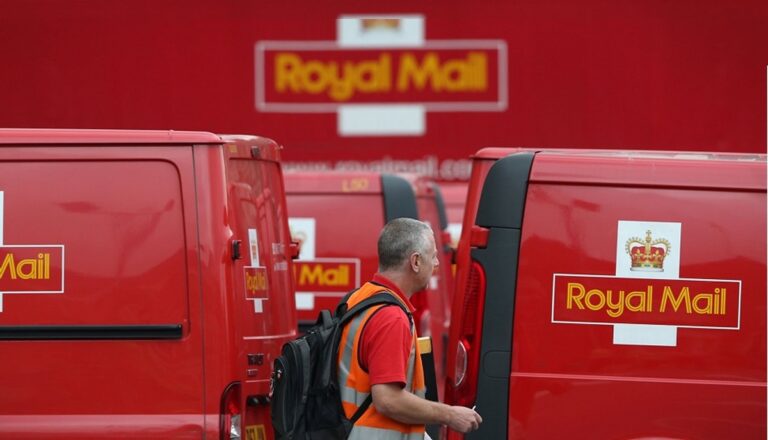In a significant step towards sustainability, Royal Mail has announced it will halve its domestic flights, cutting 18 routes as part of a comprehensive strategy to achieve net zero emissions by 2040.

Topics covered
In a significant step towards sustainability, Royal Mail has announced it will halve its domestic flights, cutting 18 routes as part of a comprehensive strategy to achieve net zero emissions by 2040.
Royal Mail delivers around eight billion letters and over five billion parcels annually, each requiring transportation from sorting facilities to recipients and that can be tracked from the post office tracking system available online, utilizing the tracking number of the parcel. Currently, the average parcel generates approximately 218 grams of CO2 equivalent, contributing to over one million tonnes of CO2 emissions each year—an alarming figure that does not even include the emissions from letters.
Transitioning to Sustainable Transport
The aviation sector is notorious for its environmental impact, primarily due to its reliance on unsustainable fossil fuels. In response to this challenge, Royal Mail is pivoting from air travel to road and rail transport. By making this shift, the company anticipates saving around 30,000 tonnes of CO2 equivalent annually. This move aligns with the growing global imperative for companies to take responsibility for their carbon footprints.
Matt Gower, Head of ESG at Royal Mail, emphasized the company’s commitment: “We’ve put a huge effort into the design and delivery of our environmental strategy so that we continue to be the UK’s greenest parcel operator. We’re only at the beginning of this journey, but we already have a lot to show for it.”
The Impact of Reduced Flights
The decision to cut domestic flights represents Royal Mail’s largest initiative to date in reducing its environmental impact. These cuts are expected to contribute to a 4% reduction in the company’s Scope 3 emissions, which encompass indirect emissions from the entire value chain.
Recent operational changes, such as later start times for delivery offices, have enabled the company to facilitate this transition. By allowing for longer journey times, Royal Mail can successfully divert mail from air travel to more sustainable transport options.
In June, the first wave of 11 flights made their final journeys, with an additional three routes set to end in late July, and four more planned for early next year. The only remaining flights are essential for maintaining next-day delivery across the UK.
Enhancing Reliability for Customers
Alistair Cochrane, Chief Operating Officer at Royal Mail, noted the dual benefits of this initiative: “Not only will this reduce carbon emissions, but transporting more mail by road will also help us provide a more reliable service for customers and increase our capacity to meet the increasing demand for next-day parcel deliveries.”
In an era where package tracking has become a staple of online shopping, this move is particularly significant. By ensuring a more reliable and efficient delivery system, Royal Mail aims to enhance the overall customer experience, offering better tracking capabilities and more predictable delivery times.
Royal Mail’s Net Zero Strategy
Royal Mail has set an ambitious target to reach net zero emissions by 2040, adhering to climate science and the decarbonization pathway outlined in the Paris Agreement. In pursuit of this goal, the company aims to reduce the average emissions per parcel from 218 grams of CO2 equivalent to just 50 grams.
Key Commitments Include:
- Reducing emissions associated with business operations.
- Collaborating with suppliers and partners to encourage emission reductions across the value chain.
- Addressing the physical and transitional risks associated with climate change through appropriate mitigation strategies.
With a workforce of 85,000 ‘posties’ who collectively walk up to a billion steps daily, Royal Mail is also deploying over 5,000 electric vans and integrating other low and zero-emission vehicles into its fleet. The company has also implemented biofuels for its heavy goods vehicles, resulting in a remarkable reduction of more than two million liters of diesel last year.
Innovative Waste Reduction Strategies
In addition to its efforts to cut emissions, Royal Mail has successfully reduced waste by approximately 2,000 tonnes annually through the introduction of reusable trolley sleeves. These new sleeves, made from recyclable corrugated plastic, replace single-use cardboard, helping the company meet its waste targets seven years ahead of schedule.
Royal Mail’s decision to halve domestic flights is a bold and necessary step in the fight against climate change. By prioritizing sustainability while maintaining service reliability, the company not only addresses pressing environmental issues but also enhances its operations for the benefit of its customers. As the landscape of parcel delivery continues to evolve, Royal Mail’s commitment to reducing its carbon footprint positions it as a leader in the industry’s green transition.




